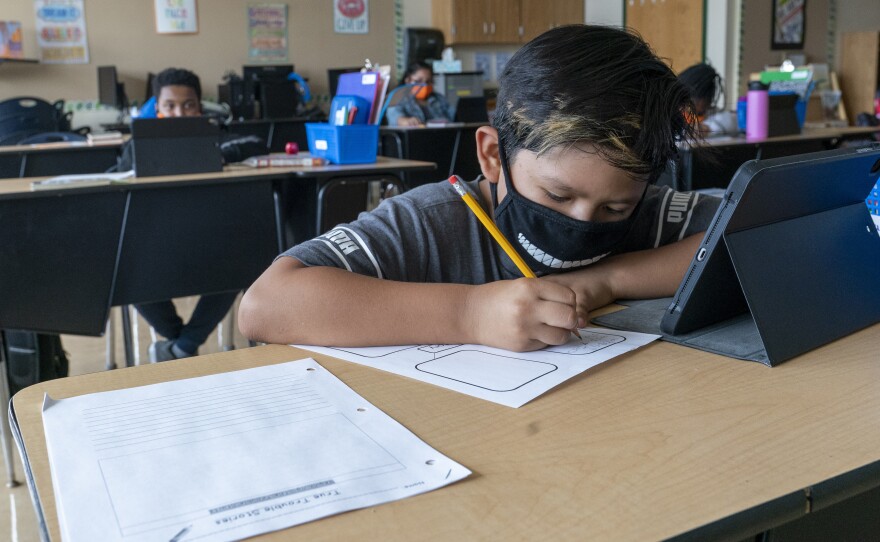As coronavirus cases climb worryingly across the United States, a recent study shows that the number of children contracting the virus "steadily increased" in July.
In the last week alone, according to the report from the American Academy of Pediatrics and the Children's Hospital Association, nearly 72,000 cases were reported in children, roughly 19% of the total number of new cases nationwide. And while hospitalizations and deaths remain low, the number of child coronavirus infections increased by 3% over the last two weeks of the month after declining earlier in the summer.
Since the pandemic began a year and a half ago, approximately 4.2 million children have tested positive for the coronavirus. The good news is that severe illness and death are still uncommon for children who contract the virus. In states reporting, children accounted for fewer than one-quarter of 1% of all COVID-19 deaths. Seven states reported no child deaths, while other states reported 0-0.03% of all child coronavirus cases resulting in death. As of July 29, a total of 358 children have reportedly been killed by COVID-19 in the U.S.
Long-term health of children needs to be studied
"However, there is an urgent need to collect more data on longer-term impacts of the pandemic on children, including ways the virus may harm the long-term physical health of infected children, as well as its emotional and mental health effects," the report reads.
That said, the report acknowledged that the figures could be inaccurate for a handful of reasons. The ages designated as a "child" vary from state to state, ranging from newborns to 20, and some states altered their definition of a child during the pandemic.
Further complicating things, the most up-to-date numbers include testing figures from only 11 states, according to the report. Only 23 states and New York City reported hospitalizations and 43 states — along with New York City, Puerto Rico and Guam — reported mortality rates. Florida stopped reporting child hospitalizations in late June and Iowa stopped updating child testing data shortly after. And in Nebraska, the COVID-19 dashboard has been unavailable since the end of June.
Parts of the country are considering reimplementing protective measures as cases climb. With the start of the school year just around the corner, the same organization that conducted the report is recommending that students over the age of 2 and all staff — vaccinated or not — mask up.
Some states though, including Arkansas, Florida, South Carolina and Texas, have implemented laws prohibiting mask mandates in schools.
With cases running rampant across his state, Arkansas Gov. Asa Hutchinson is caught in a bind. The governor is still not in favor of a statewide mandate, but he wants the law banning state and local mask mandates overturned to give schools the opportunity to implement mask mandates.
"In hindsight, I wish that it had not become law," Hutchinson said at a news conference Tuesday. "But it is the law, and the only chance we have is either to amend it or for the courts to say that it has an unconstitutional foundation."
To date, the coronavirus has claimed the lives of more than 612,000 people. The Centers for Disease Control and Prevention recently walked back its previous message that most vaccinated persons could engage in nearly all activities mask-free. It is now recommending that everyone, regardless of vaccine status, return to wearing masks indoors in areas where transmission rates are high.
Copyright 2021 NPR. To see more, visit https://www.npr.org.







